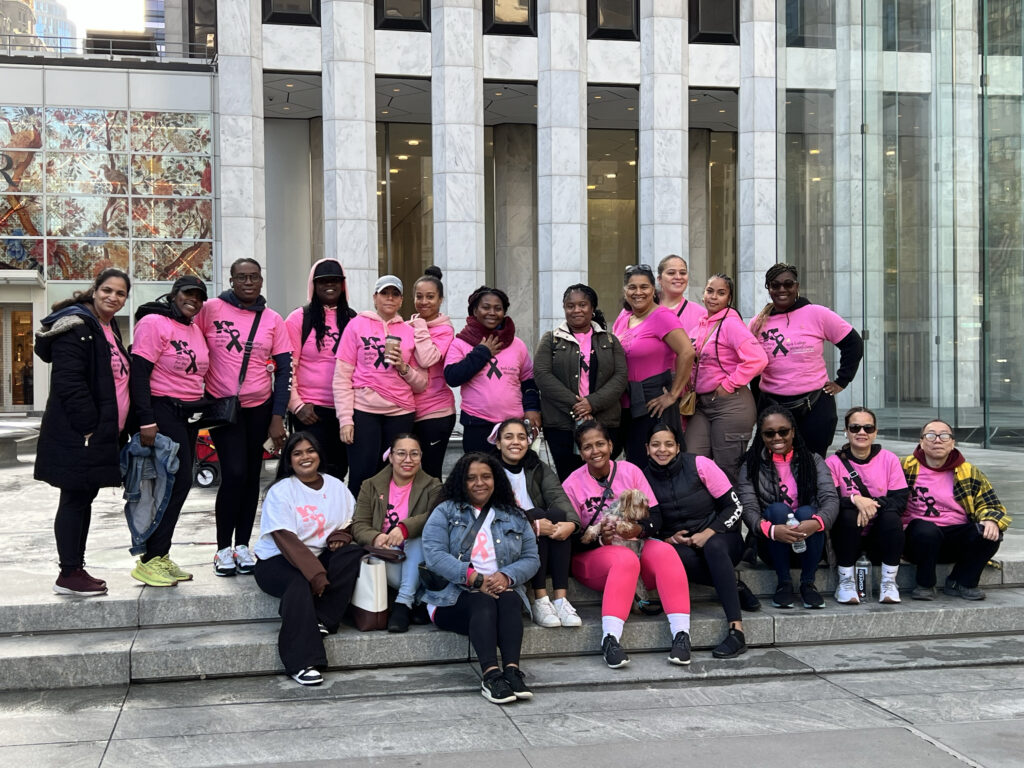
By Alexandra Halloran
For decades, women have been abused, harassed, assaulted and even worse, but almost nobody spoke out about it. Many people were forced to be quiet due to fear and the trauma they faced. It wasn’t until 2006 where Tarana Burke created the MeToo Movement which allows people to speak up about their sexual violence. But the movement didn’t become an international phenomenon until the hashtag MeToo went viral in 2017 and people started to speak up, especially celebrities. Ebonie Jackson, the Director of the Women’s Center for Gender Justice at York College, said the purpose of the movement is to show people that they aren’t alone and that there are resources there to help those who have also experienced things like this.
This interview was condensed and edited for clarity.
If you were sexually assaulted or harassed, how long after did you discover the Me Too movement? What made you want to join the movement if you weren’t?
As a woman, I’ve had to deal with street harassment and catcalls since I was a teenager. When the #metoo movement became popular in 2017 it immediately resonated with me. As I read the stories that women were finally brave enough to tell publicly I know that this wasn’t just a hashtag but would grow into a movement.
Who introduced you to this organization?
I saw Tarana Burke speak on one of the cable news networks. Although some of the more mainstream actresses popularized the hashtag I was happy to see someone finally credit Tarana Burke, a black woman, with its initial creation from 2006.
Have you gotten other people to join the movement?
Yes. I brought Tarana Burke to speak at York College for Women’s History Month in 2019. It was a very well-attended event and it was a powerful talk. We purchased a book endorsed by her organization and gave them to students. She interacted with many students and I know some of them joined the formal organization.
Has joining this organization improved your life?
My favorite saying is “A burden shared is a burden halved” and I believe that’s true in this case. Many times when woman experience any time of sexual violence they feel like they’re alone – like they’re the only ones going through this terrible thing. So just having the community and fellowship with other people who can relate and say “me too” is powerful and affirming.
Has joining the organization empowered you as a person and have you seen it empower others?
Just looking in the media we can see how #metoo has empowered thousands of survivors of sexual violence. Also, it’s brought about some small measure of accountability to some highly visible perpetrators as well. There’s lots more to do but it’s a start.
What made you want to speak out? Was it the movement or something else entirely?
As the Director of the Women’s Center for Gender Justice, I’ve always spoken out against sexual violence. However, the #metoo has made the work easier for me in a way. It’s brought awareness to the issue and shined a bright light on conversations that used to be had in hushed tones.
How are you helping others speak out and not give their perpetrators power?
At the Women’s Center for Gender Justice, we have consistent programming focused on education, awareness and prevention of sexual/ intimate partner/ domestic violence. It begins with knowing that victims/ survivors are not alone. This type of behavior thrives in secrets and shame and just by shining the light on it we help to take back the power from perpetrators.
Have you created a platform to help others speak out?
We have in-person and online events that center survivors’ voices and provide allyship. Also, we have weekly support circles for survivors.
Who inspired you to want to speak out? Was it someone close to you, or were they a complete stranger?
Watching the movement evolve and gather momentum inspired me to be even more vocal. Again, knowing that I’m not alone in this experience and in doing this work makes all the difference.
Finally, do you truly believe that one day the world will change and no person will ever have to go through this again?
I have to believe that it’s possible although I’m not naive and know that we have a long way to go to get to that point. We need to stamp out the various forms of victim-blaming, rape culture, and toxic masculinity that often accompany sexual violence. Only then, will we have a chance to make permanent and positive change.

